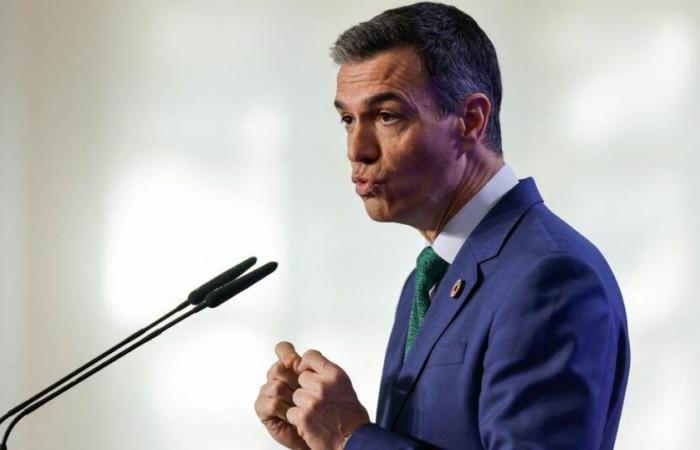The right-wing opposition has decided to boycott the first of the ceremonies organized by the executive of Prime Minister Pedro Sánchez.
Throughout the year, Spain will celebrate the 50th anniversary of the death of dictator Francisco Franco and the start of the transition to democracy. The right-wing opposition decided to boycott on Wednesday the first of the ceremonies organized by the executive of Prime Minister Pedro Sánchez, illustrating the fact that the wounds are still far from being healed almost half a century after the end of Francoism .
At the end of a civil war which lasted three years (1936-1939) and left several hundred thousand dead, General Franco, then an ally of the Nazi regime, governed Spain with an iron fist for 36 years. Prime Minister Sánchez announced this initiative in December, indicating that it was “single objective” of “highlight the great transformation achieved during this half century of democracy”. He had mentioned “more than a hundred events”indicating that they would have as a framework “our streets, our schools, our universities and our museums”. The full program has not yet been made public.
Chaired by Sánchez, the first ceremony will take place on Wednesday at the Reina Sofía National Museum in Madrid, which houses the famous painting by Pablo Picasso «Guernica»one of the greatest symbols of the anti-Franco struggle. The Prime Minister’s initiative, however, did not excite the rest of the political class.
Repairs
Alberto Núñez Feijóo, leader of the Popular Party (PP), the main right-wing opposition group, considers that it is political opportunism and has the sole aim of diverting public attention from the setbacks of Sanchez. This program comes from a government “who, in his despair, constantly looks to the past”said Feijó, who decided not to attend Wednesday’s ceremony. Like the PP, the far-right Vox party, the third largest force in the country with 33 deputies, will boycott the ceremony.
But criticism of Sánchez’s initiative also came from the far left, which sees it as a “deception” to hide the fact that Spain, according to her, has done little in the way of reparations for the victims of the dictatorship. Sánchez voted in 2022 for a “law of democratic memory” which provides in particular for the creation of a register of victims of Francoism and the removal of symbols of the dictatorship.
But the law did not allow the torturers still alive to be tried, who benefited from the amnesty law passed during the transition to democracy. At Sánchez’s initiative, Franco’s remains were exhumed in 2019 from the imposing mausoleum north of Madrid that he had built by thousands of political prisoners and transferred to a cemetery in the capital. Franco died on November 20, 1975 at the age of 82. Two years later, Spain celebrated democratic elections and in 1978 the current Constitution was adopted by referendum.






